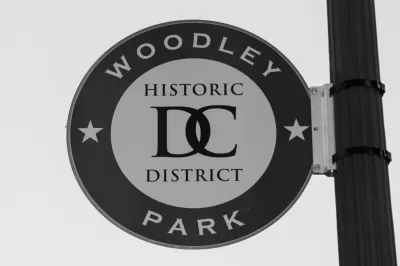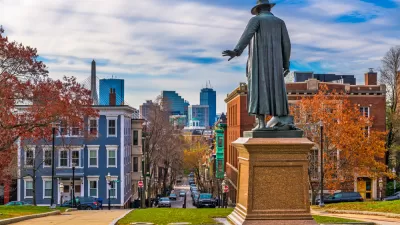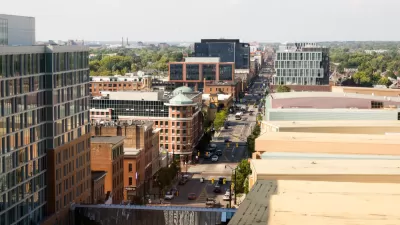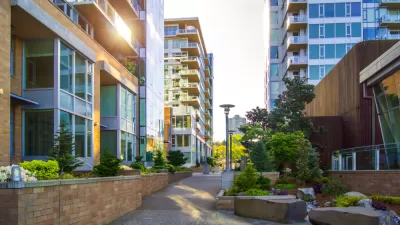Zoning can limit more than just multi-family housing.

The D.C. Office of Planning recently released a draft report to evaluate the potential of raising a cap on the number of restaurants and bars allowed in the neighborhoods of Cleveland Park and Woodley Park.
Zoning currently allows “no more than 25% of the linear street frontage within a particular zone can be occupied by bars and restaurants,” according to an article by Amanda Michelle Gomez.
Planning Director Anita Cozart is quoted in the article saying that the original intention of the rule was to encourage a variety of businesses in the area, but residents and businesses have come to view the cap as a limitation on local businesses.
According to the article, the D.C. Office of Planning is considering changes to the cap as part of its effort to implement the District’s Comprehensive Plan.
“The neighborhoods have historically excluded multifamily buildings and minimized commercial uses, leading to low population growth and high household incomes as compared to the rest of the city, according to the planning office’s draft report,” writes Gomez. “Options on the table include increasing the percentage of retail space that can be devoted to bars and restaurants, from 25% to 50% or 75%, or removing the cap entirely.”
More details on the goals and timeline for the zoning changes in the D.C. neighborhoods of Cleveland Park and Woodley Park.
FULL STORY: Should Cleveland Park, Woodley Park get more restaurants? A growing number of residents say yes

Study: Maui’s Plan to Convert Vacation Rentals to Long-Term Housing Could Cause Nearly $1 Billion Economic Loss
The plan would reduce visitor accommodation by 25,% resulting in 1,900 jobs lost.

North Texas Transit Leaders Tout Benefits of TOD for Growing Region
At a summit focused on transit-oriented development, policymakers discussed how North Texas’ expanded light rail system can serve as a tool for economic growth.

Using Old Oil and Gas Wells for Green Energy Storage
Penn State researchers have found that repurposing abandoned oil and gas wells for geothermal-assisted compressed-air energy storage can boost efficiency, reduce environmental risks, and support clean energy and job transitions.

Private Donations Propel Early Restoration of Palisades Playground
Los Angeles has secured over $1.3 million in private funding to restore the Pacific Palisades playground months ahead of schedule, creating a modern, accessible space that supports community healing after recent wildfires.

From Blight to Benefit: Early Results From California’s Equitable Cleanup Program
The Equitable Community Revitalization Grant (ECRG) program is reshaping brownfield redevelopment by prioritizing projects in low-income and environmental justice communities, emphasizing equity, transparency, and community benefits.

Planting Relief: Tackling Las Vegas Heat One Tree at a Time
Nevada Plants, a Las Vegas-based nonprofit, is combating the city’s extreme urban heat by giving away trees to residents in underserved neighborhoods, promoting shade, sustainability, and community health.
Urban Design for Planners 1: Software Tools
This six-course series explores essential urban design concepts using open source software and equips planners with the tools they need to participate fully in the urban design process.
Planning for Universal Design
Learn the tools for implementing Universal Design in planning regulations.
Ascent Environmental
Borough of Carlisle
Institute for Housing and Urban Development Studies (IHS)
City of Grandview
Harvard GSD Executive Education
Toledo-Lucas County Plan Commissions
Salt Lake City
NYU Wagner Graduate School of Public Service





























